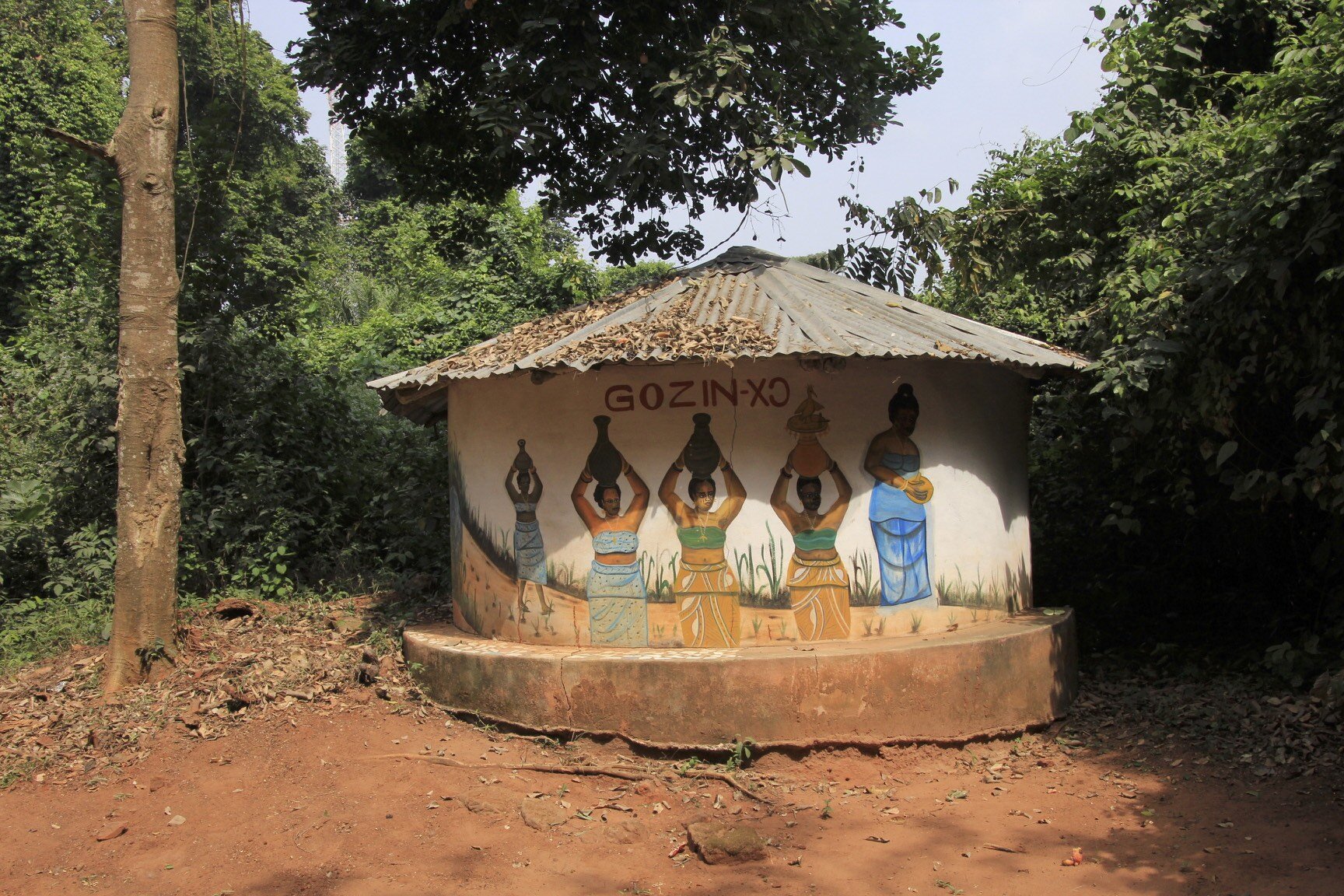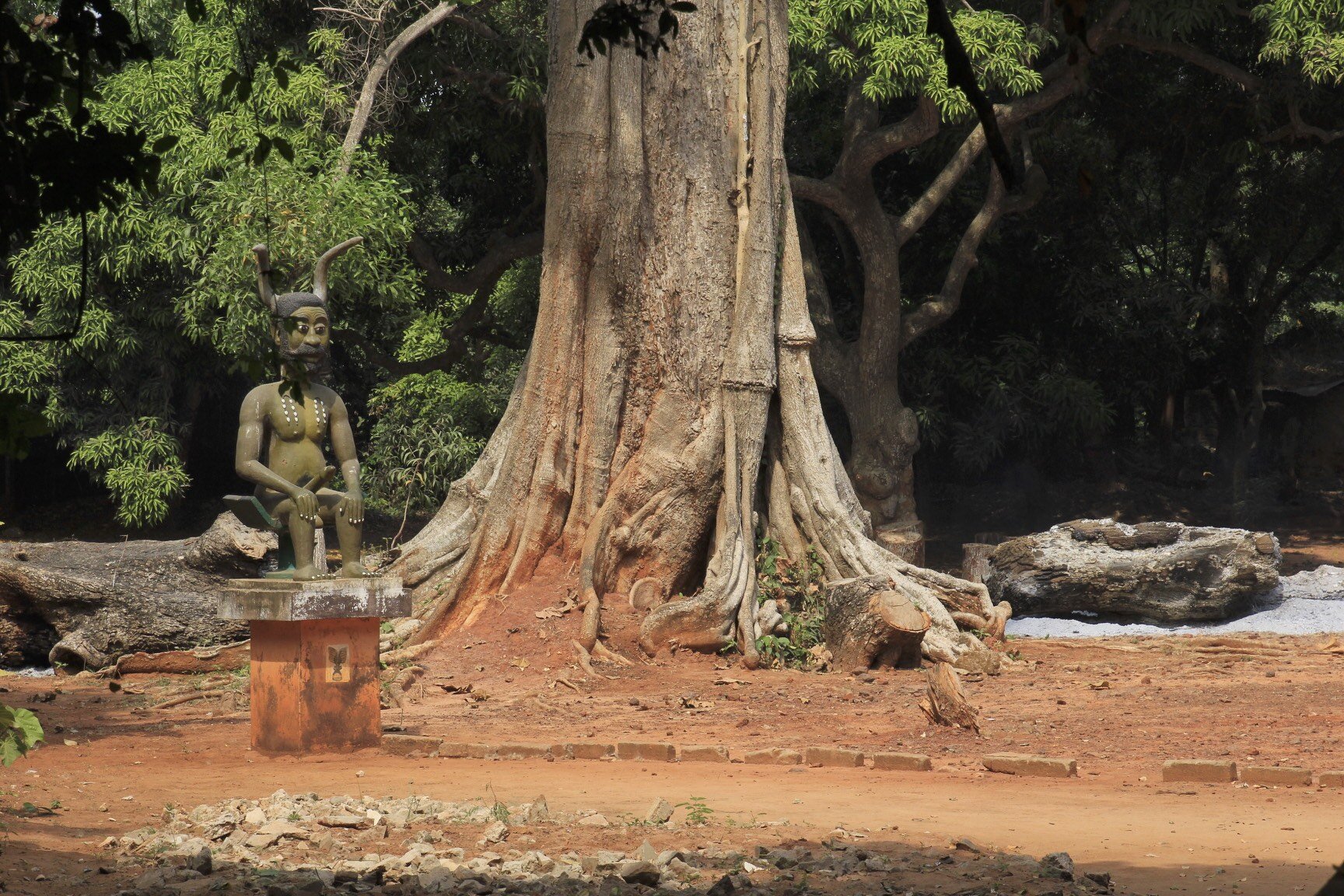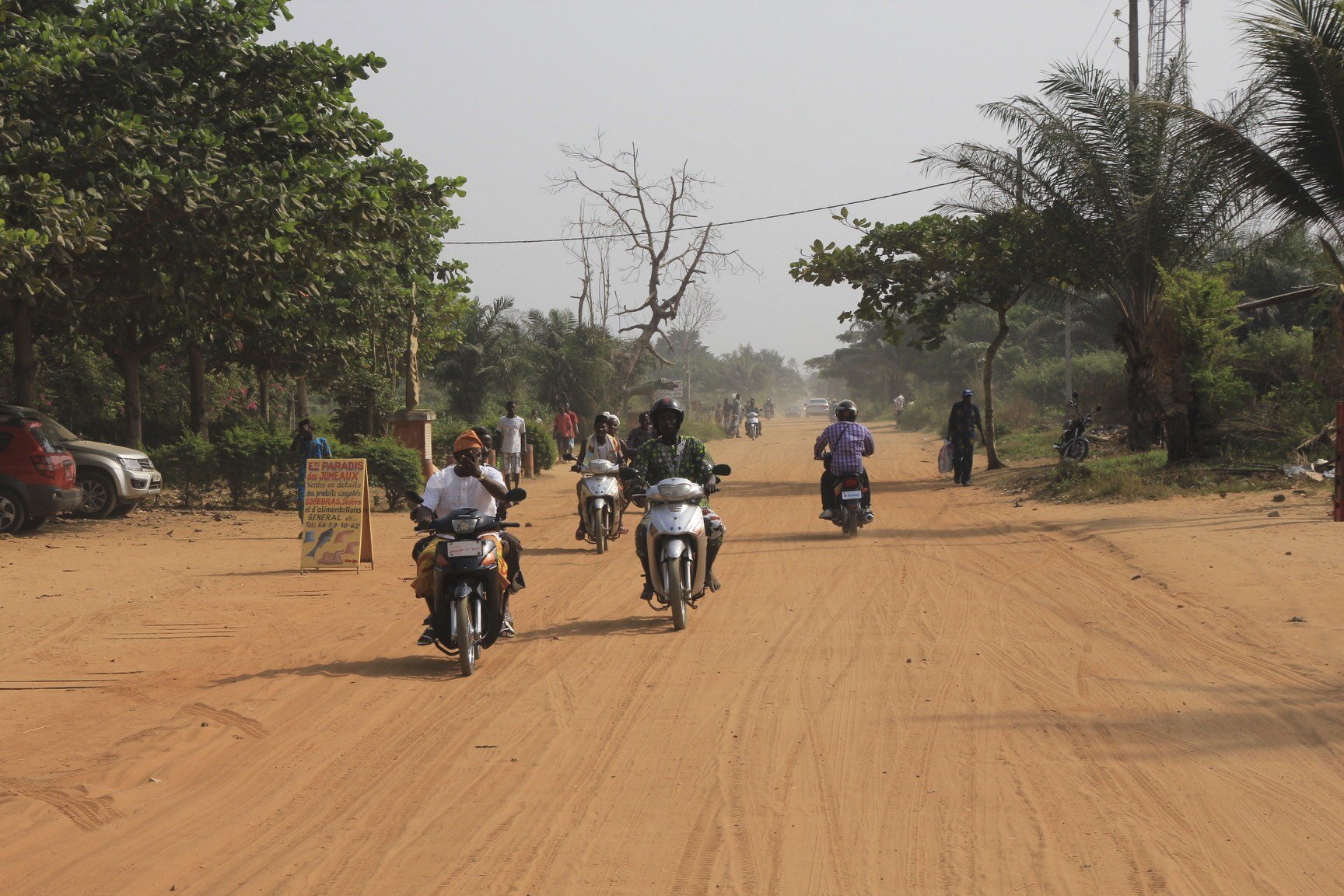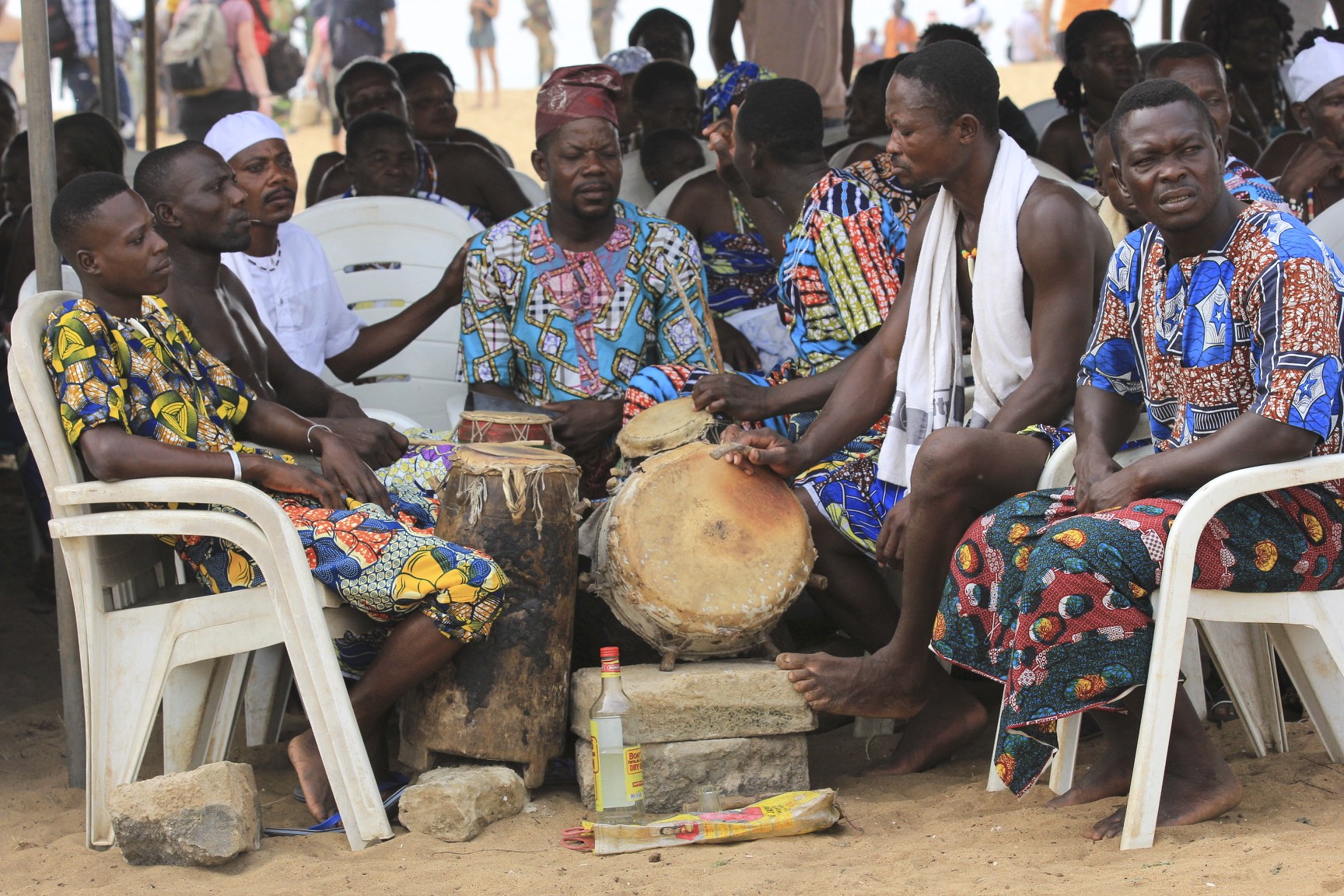Voodoo or vodun is officially a national religion in the coastal West African state helmed between Nigeria and Togo. During Matthew Kerekou’s Marxist military rule of 18 years which ended in 1991, voodoo was suppressed and outlawed in the country, even though about 60% of Beninese are devotees of the faith.
With the exit of Kerekou from power, the practice began to thrive freely again. Following his return to power as a democratic elected President in 1996, Kerekou capitulated to the people’s wish when taking his oath of office by acknowledging ancestral spirits, and the government declared January 10th as public holiday in celebration of Fête du Vodoun (Voodoo Festival).
In times past, Ouidah served as a major port where African slaves were shipped to the Americas and Caribbean. The festival often starts with the slaughter of a goat to the python spirit at the Temple of Python. This is followed by a 3km trek from the old slave auction block down to the harbor as devotees are led by the voodoo pope (voodoonou) who stops to offer prayers at specific points on the way.
Vodun means ‘spirit’ in the local Fon and Ewe languages. The divine creator in voodoo is Mawu or Mahou. She is an older woman, a mother, gentle and forgiving. She is the god who owns all other gods.
Mawu’s masculine counterpart is Legba, believed to be a very old wise man who walks with crutches. In statues and images, he is represented as a phallus or as a man with a prominent phallus. Legba is the most powerful of all voodoo divinities. He is the guardian of the door of the spirits so it is only through Legba that it’s possible to contact other gods.
There are about 100 other voodoo divinities who all represent different phenomena. For example, there is Gou, the god of war and blacksmiths, and Sakpata, the god of illness, healing and earth.
There is a legend that King Kpasse, the first king of Ouidah, turned himself into a tree. Over the centuries, this tree has gained religious and spiritual significance. In 1991, ahead of the first International Voodoo Festival, the area around the tree was landscaped and statues of voodoo gods were erected. It is now a place of pilgrimage for adherents of voodoo from Benin and further afield.
Zangbeto - the guardians of the night in the Voodoo religion. According to the Yoruba tribe tradition, there are no people under the haystack costume, only the spirits of the night. Zangbeto are a source of wisdom and continuity.
Zangbeto guarantees protection against bad spirits and malicious people. The spinning movement of the mask symbolizes the spiritual cleaning of the village and Zangbeto also performs miracles to prove its powers.
Zangbeto and his minder
The King of Allada and his wives
Voodoo priestess
Drummers waiting for their turn in the voodoo ceremony
The Voodoo Pope
Voodoo priest
Vodun talismans (statues, human and animal body parts), called fetishes, are often combined in the construction of shrines or altars used to call forth specific deities and their associated powers. These shrines often ooze with candle wax, palm oil, feathers and the blood of sacrificed animals. The fetish origins of worship which form the basis of voodoo, predate most religions by as much as 10,000 years.
Voodoo priests ask the divinities to intervene on behalf of ordinary people. They sometimes ask for offerings to sacrifice to the god; a chicken, a goat, or a sheep, perhaps. Each animal is used for a specific ceremony. Other more mundane objects are also used in religious ritual. This is explained by the fact that all creation is considered divine and, therefore, contains the power of the divine. This is how herbal remedies are understood. No object possesses any sort of power, though, until it has been blessed by a voodoo priest.
Followers of voodoo hire a voodoo priest once every seven years to perform a good fortune ritual for themselves and their family.
Some spirits are maleficent, and speaking with the spirit world is quite dangerous unless you take necessary precautions. Most of the time, the only people allowed to communicate with the spirits are Vodun priests, who surround themselves with protective fetishes/amulets, but sometimes ‘lay people’ are invited to join a ceremony. In this case, the priest will often either anoint the attendee with water, or get them to drink some out of a suitably protected bottle.
Twins, dwarves and albinos are amongst the most revered people in voodoo and are feted wherever they go. Twins, in particular, are considered a huge blessing for a family. People who have lost a twin sibling gather together to remember their brother or sister and give thanks for their lives. It is thought that, that many women lie about losing a twin.
Each of the Vodun spirits is invoked by means of a ‘fetish’, or specific object, and each spirit has their own specific object, which relates in some way to what they do. This may sometimes be a anthropomorphic representation of the spirit in question, or it could be an object that relates to their remit in some way. However the fetish itself is usually not enough – a ‘preparation’ has to be applied. This is a special ‘mix’ of liquid, powder, and detritus that is either smothered onto the fetish, poured into a vessel atop the spirit’s representative form, or otherwise ingested, applied, or burned as necessary.
The possessed
The use of talcum powder in Vodou rituals is used to embody or summon spirits.







































































































